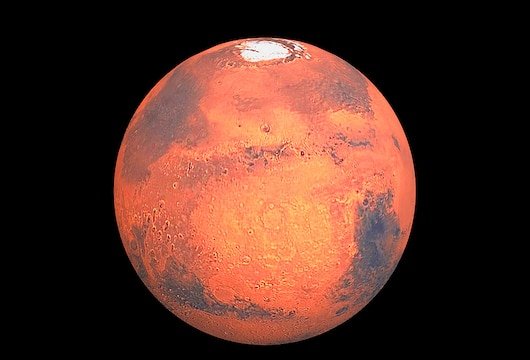
This month no less than three missions to Mars will arrive around or on the red planet. This will add to the resources currently observing the it, and the battered Mars Rover will be relieved to see them.
The UAE Hope mission is in orbit, China’s Tianwen-1 is due to arrive next week, and the NASA Mars 2020 arrives soon afterwards. Each has different roles, but the same goal – to study the planet in even more detail than before. NASA plans to see if they launch a helicopter while on the surface.
Mars is fascinating for several reasons.
As a planet with water, it can sustain life (without all the mucking about carrying bottled water all that way) so is an obvious base and launch pad into deeper space. It is also a refuge once we have grilled our own planet to a crisp. It quite possibly looks like Earth will look in a couple of hundred million years.
Mars is also fascinating as something to study in itself. A team of scientists has now discovered that the planet has gone through between six and 20 ice ages in the last 300-800 million years and this knowledge (although not exactly accurate to within a week or two) is useful to fill out the datasheet on exactly what we can expect when we get there.
This, of course, brings up the next question. How do we get there?
Elon Musk, who is keen to take the trip, is now saying he will be able to bring people to Mars by 2026. By people, we assume he means superbly trained astronauts, rather than your typical club loving tourist.
Others are also considering how best to make the seven-month journey, without ruining the health of the passengers. Dr Fatima Ebrahimi, from the US Department of Energy’s Plasma unit in Princeton, has come up with a concept that, if proven, will increase the speed of space travel by a magnitude of 10.
She came up with the idea while sitting on her deck, pondering the similarities between “car exhaust and the high-velocity exhaust particles created by PPPL’s National Spherical Torus Experiment (NSTX).”
You know the feeling, of course.
Understandably, there is fascination about Mars, our other planets and deep space. Though, part of you has to wonder if it is many billions of dollars worth of fascination when our own planet is falling apart. And if so, why.
Now that Jeff Bezos is stepping down from Amazon to concentrate on his space ambitions, it means that the world’s two richest people, more and more of the world’s major governments and probably others, are all throwing money into space.
While conspiracy theories are going out of fashion (or should be), you have to wonder if they know something we don’t know.
We live, after all, in an increasingly endangered and fragile blue/green world. Could it be that Mars could be the ultimate place to self-isolate or quarantine?
Until it is safe to return.

Be the first to comment